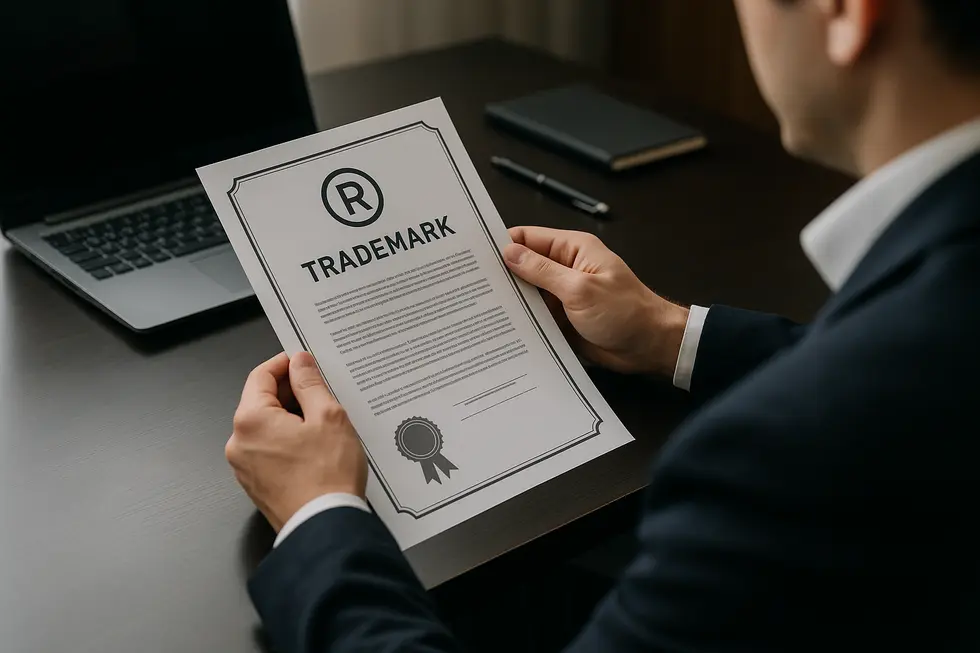导言
For business owners, protecting intellectual property is critical to maintaining market control and driving revenue growth. Registering a copyright goes beyond simply creating original work—it provides legal assurances, economic value, and practical levers to enforce and monetize creativity. Understanding these multifaceted advantages ensures you safeguard your innovations and maximize their profitability. This exploration covers three key dimensions: the robust legal protections established through registration, the strategic business benefits of intellectual property as a valuable asset, and the practical procedural advantages needed to enforce rights efficiently. By grasping these connected facets, business owners can confidently leverage copyright registration as a fundamental tool for sustainable growth and competitive edge.
目录
Chapter 1: Legal Benefits of Registering Copyright: Presumptions, Public Records, and Enforcement Rights
- How Legal Presumptions from Copyright Registration Empower Ownership and Resolve Disputes
- How Public Records Fortify Copyright Ownership and Deter Infringement
- Unlocking Enforcement Powers: How Copyright Registration Enables Litigation and Statutory Remedies
Chapter 2: Economic and Business Benefits of Registering Copyright: Asset Value, Licensing, and Tax Advantages
- How Copyright Registration Transforms Creative Works into Valuable Business Assets
- Maximizing Licensing Potential: How Copyright Registration Elevates Asset Value and Tax Efficiency
- Maximizing Financial Gains: How Copyright Registration Unlocks Tax Benefits and Enhances Business Value
Chapter 3: Practical and Procedural Benefits of Registering Copyright: Lawsuit Prerequisites, Statutory Damages, and Strategic Advantages
- Unlocking Legal Enforcement: How Copyright Registration Enables Lawsuit Rights and Statutory Remedies
- Maximizing Financial Recovery Through Timely Copyright Registration: Accessing Statutory Damages and Attorney’s Fees
- Maximizing Legal Strength and Market Impact: How Copyright Registration Empowers Enforcement and Business Growth
Chapter 1: Legal Benefits of Registering Copyright: Presumptions, Public Records, and Enforcement Rights

1. How Legal Presumptions from Copyright Registration Empower Ownership and Resolve Disputes
Legal presumptions triggered by copyright registration are pivotal in confirming ownership and simplifying dispute resolution. When a copyright is registered, the law presumes that the copyright is valid and that the registrant owns the work. This shifts the burden of proof to challengers, who must show that the registration is invalid or that they hold ownership instead. Such a presumption acts like a legal endorsement, facilitating enforcement and strengthening the copyright holder’s position in court.
Moreover, registration is a mandatory step before initiating infringement lawsuits in the U.S. This requirement limits litigation to recognized copyrights, streamlining judicial processes and focusing on legitimate claims. Registered works also unlock eligibility for statutory damages and attorney’s fees, powerful remedies that can deter infringement by increasing the financial risk for violators.
Additionally,등록 can create a public record that constructs legal notice of ownership, reducing accidental infringement and bolstering the copyright’s legal standing. Courts tend to treat registered copyrights as more credible, influencing outcomes favorably for owners. Thus, registration transforms an inherent but sometimes intangible right into a robust legal asset that facilitates both ownership affirmation and effective infringement deterrence.
For further insights on protecting creative assets, see this 企业进行版权登记的好处.
Source: Kindlepreneur detailed analysis on copyright registration presumptions.
2. How Public Records Fortify Copyright Ownership and Deter Infringement
Registering a copyright generates a vital public record that distinctly marks the ownership and creation date of a creative work. This transparency not only publicly asserts the author’s rights but also serves as a powerful deterrent against unauthorized use. Because this information is accessible and verifiable, it signals to potential infringers that the work is legally protected and that formal steps have been taken to secure those protections.
The public record functions as prima facie evidence in courts, meaning the registered copyright certificate is accepted as valid proof of ownership unless challenged and disproven. This legal recognition streamlines disputes by easing the burden of proof for copyright holders and strengthening their position in infringement cases. Furthermore, registration unlocks important enforcement rights, such as the ability to initiate lawsuits and claim statutory damages and attorney’s fees, remedies often unavailable without registration.
Beyond litigation, this public record enhances the commercial value of intellectual property by clearly defining ownership, which is crucial for software or other corporate creations where proprietary rights must be both recognized and enforceable. For creators and businesses alike, this public documentation is integral to leveraging legal protections effectively.
For deeper insights into copyright registration benefits, see TM Wala’s overview on copyright registration.
3. Unlocking Enforcement Powers: How Copyright Registration Enables Litigation and Statutory Remedies
Registering a copyright provides crucial enforcement rights that transform basic ownership into actionable protection. While copyright exists automatically from creation, registration is a mandatory step before pursuing infringement litigation in many jurisdictions. It establishes a public record that clearly defines ownership, creating transparency and deterring potential infringers by signaling documented claims.
Moreover, registration grants copyright holders access to powerful remedies unavailable without it, such as statutory damages and attorney’s fees. These financial penalties increase disincentives for unauthorized use and can significantly reduce legal costs for the owner when litigation becomes necessary. Timely registration—generally within three months of publication—is essential to secure these benefits.
A registered copyright also benefits from a legal presumption of validity, meaning courts assume the claim is legitimate, shifting the burden of proof onto challengers. This presumption strengthens enforcement efforts and simplifies dispute resolution. Additionally, registration enhances the copyright’s value as an intellectual property asset by substantiating ownership for licensing or sale.
Ultimately, registration empowers rights holders to proactively monitor, enforce, and monetize their works with confidence. For further guidance on protecting creative assets, the 美国版权局 提供全面的资源。
For those interested in integrating copyright protections into broader business strategies, understanding the 企业进行版权登记的好处 provides valuable insights.
Chapter 2: Economic and Business Benefits of Registering Copyright: Asset Value, Licensing, and Tax Advantages

1. How Copyright Registration Transforms Creative Works into Valuable Business Assets
Registering a copyright does more than secure legal rights—it transforms creative works into powerful economic assets. By creating an official public record, registration offers undeniable proof of ownership, which underpins both enforcement and monetization. This clear legal status enables copyright holders to confidently license their works, generating ongoing revenue streams backed by enforceable contracts. Licensing agreements become more robust because registration provides prima facie evidence in court, supporting claims of infringement and potentially allowing for statutory damages and attorney’s fees.
Beyond licensing, registered copyrights hold significant value on a company’s balance sheet. These intangible assets can be bought, sold, or assigned, enhancing the overall business valuation and attractiveness to investors. For creative enterprises, this translates to tangible financial growth and broader capital opportunities.
Moreover, strategic management of copyrights within corporate and financial structures can unlock tax advantages, depending on jurisdictional rules. While professional advice is essential for optimization, properly registered copyrights offer pathways to tax-efficient income through royalties or asset transfers.
Thus, copyright registration is a key tool that elevates original works from mere creations into monetizable, legally protected business assets, advancing both creative and economic goals. For more insights on intellectual property, see 版权法业务基础.
2. Maximizing Licensing Potential: How Copyright Registration Elevates Asset Value and Tax Efficiency
Registering a copyright significantly boosts the ability to license creative works, transforming intangible ideas into valuable, revenue-generating assets. This registration legally affirms ownership, creating a clear foundation for licensing deals that allow creators and businesses to monetize their intellectual property without relinquishing control. Registered copyrights serve as tangible business assets that can be leveraged for income streams through strategic licensing agreements, often extending to related or unrelated parties. Beyond income generation, these arrangements facilitate sophisticated tax planning by allocating royalties and expenses efficiently across jurisdictions to minimize tax burdens. Licensing enables continuous revenue while maintaining ownership, making it possible to optimize financial outcomes through structuring. Furthermore, registration enhances legal enforceability, supporting robust licensing contracts and deterring unauthorized use. The economic impact is notable: registered copyrights not only increase a company’s valuation but also attract investors by showcasing protected, marketable assets. This integration of legal certification and business strategy creates a powerful platform for innovation-driven revenue and growth. For a deeper dive into tax-efficient IP licensing strategies, see this comprehensive guide on licensing IP to related entities for tax efficiency.
3. Maximizing Financial Gains: How Copyright Registration Unlocks Tax Benefits and Enhances Business Value
Registering a copyright transforms intangible creative work into a tangible business asset that can significantly improve a company’s financial position. This formal recognition allows the copyright to be bought, sold, or licensed, generating new revenue streams that add measurable value to a business’s balance sheet. Such transactions provide strategic opportunities to optimize tax outcomes, as businesses can structure licensing agreements or assignments to related entities in ways that reduce effective tax rates or unlock legitimate deductions.
Moreover, copyright registration supports tax planning by facilitating access to credits, particularly in research and development or international IP holding arrangements. These advantages reinforce the practicality of treating copyrights as intellectual property assets strategically managed to enhance profitability. Legal protections conferred by registration further solidify the asset’s commercial value, making it more attractive for investment or sale, while also preserving economic worth through enforceable rights to statutory damages and attorney’s fees in infringement cases.
For companies seeking to leverage these advantages, detailed guidance is available in the comprehensive explanation on how registering copyright can add value and provide tax benefits to publishing businesses. This resource offers valuable insights into navigating the complex intersection of intellectual property and tax strategy.
See more on the 企业进行版权登记的好处.
Chapter 3: Practical and Procedural Benefits of Registering Copyright: Lawsuit Prerequisites, Statutory Damages, and Strategic Advantages

1. Unlocking Legal Enforcement: How Copyright Registration Enables Lawsuit Rights and Statutory Remedies
In the United States, formal registration of a copyright with the U.S. Copyright Office is a vital procedural step to initiate a copyright infringement lawsuit. Although copyright protection exists automatically upon creating an original work, registration serves as the legal gateway to enforce those rights effectively through litigation. Without registration, courts generally deny the ability to bring suit, making timely registration a non-negotiable prerequisite.
Registering early—either before infringement occurs or within three months of the work’s first publication—is crucial, as it not only permits filing a lawsuit but also unlocks the possibility to claim statutory damages and attorney’s fees. These statutory remedies can far exceed actual damages, making enforcement more financially feasible for rights holders. Moreover, registration creates a public record and provides a presumption of ownership and validity if done within five years of publication, simplifying proof in court and deterring potential infringers.
The registration process involves submitting an application, depositing copies of the work, and paying a fee to obtain official certification. Beyond mere protection at creation, this formality strengthens enforcement by clarifying ownership and easing dispute resolution. For creators and businesses seeking to maximize legal remedies and strategic protection, understanding and meeting registration timing requirements is essential.
For a deeper analysis of how failure to register affects enforcement, see Aaron Hall’s insights on copyright enforcement consequences.
You may also find valuable information on the 企业进行版权登记的好处.
2. Maximizing Financial Recovery Through Timely Copyright Registration: Accessing Statutory Damages and Attorney’s Fees
Timely registration of a copyright is not merely a formal step but a vital legal strategy that unlocks significant financial remedies. Registering early—especially before infringement or within three months of publication—enables copyright holders to pursue statutory damages and attorney’s fees, critical tools in enforcing creative rights. Statutory damages provide preset monetary awards ranging from $750 to $30,000 per infringed work, with amounts soaring up to $150,000 in cases of willful violation, all without requiring proof of actual losses. This mechanism serves as a strong deterrent and simplifies compensatory claims. Additionally, only those who register timely qualify to recover reasonable attorney’s fees if they prevail in litigation, substantially easing the financial burden of asserting copyright. Beyond the monetary advantages, registration creates a public record and supplies prima facie evidence of ownership, shifting the burden of proof onto the infringer and streamlining enforcement actions. These combined benefits empower rights holders to act swiftly, whether through negotiations, takedown notices, or court filings, enhancing recovery prospects and legal leverage. By integrating statutory remedies with procedural advantages, early copyright registration stands as a cornerstone for effective protection and monetization of creative works. For further insights on enforcement and registration requirements, see Aaron Hall’s detailed discussion on failure to register and enforcement cases.
3. Maximizing Legal Strength and Market Impact: How Copyright Registration Empowers Enforcement and Business Growth
Registering a copyright equips creators and businesses with powerful tools to enforce their rights and enhance market standing. By securing early registration, copyright holders gain access to full legal remedies such as statutory damages—reaching up to $150,000 for willful infringements—and the ability to recover attorney fees. This shifts the burden of proof to alleged infringers, enabling rights holders to act decisively through takedown notices, negotiated settlements, or infringement lawsuits, which minimizes unauthorized use and associated losses. Beyond legal enforcement, registration fosters credibility by publicly affirming ownership, deterring potential infringers, and strengthening negotiation leverage. This boost in trust contributes to improved brand recognition and customer confidence, which are critical in commercial environments. Additionally, registered copyrights can be valuable financial assets that support strategic tax planning and licensing deals, further enhancing competitive positioning. These factors collectively reduce the risk of infringement while creating opportunities for revenue generation and operational agility. Such comprehensive benefits make copyright registration a foundational step for creators and enterprises aiming to fully realize their intellectual property’s legal and economic potential. For deeper exploration of these advantages, visit WestSky Studio.
最后的想法
Registering copyright empowers business owners by solidifying their legal position, enhancing the intrinsic economic value of their creations, and unlocking essential procedural mechanisms to protect and enforce their rights. This foundational step not only deters infringement through public acknowledgment but also transforms original work into a powerful business asset that can generate revenue, attract licensing opportunities, and yield tax benefits. Moreover, registration provides a critical gateway to effective legal remedies, often reducing the burden and cost of litigation. For any business seeking to secure innovation and capitalize fully on its creative output, copyright registration is not just an option—it is an indispensable strategic tool for long-term success.
今天就申请商标!成千上万的人通过申请商标保护了自己的品牌。您还在等什么?开始申请商标吧!
关于我们
The globe’s top website for registering trademarks and safeguarding your brand, name, logo, or slogan. We provide trusted, efficient, and comprehensive trademark registration services tailored to secure your intellectual property and support your business growth.







